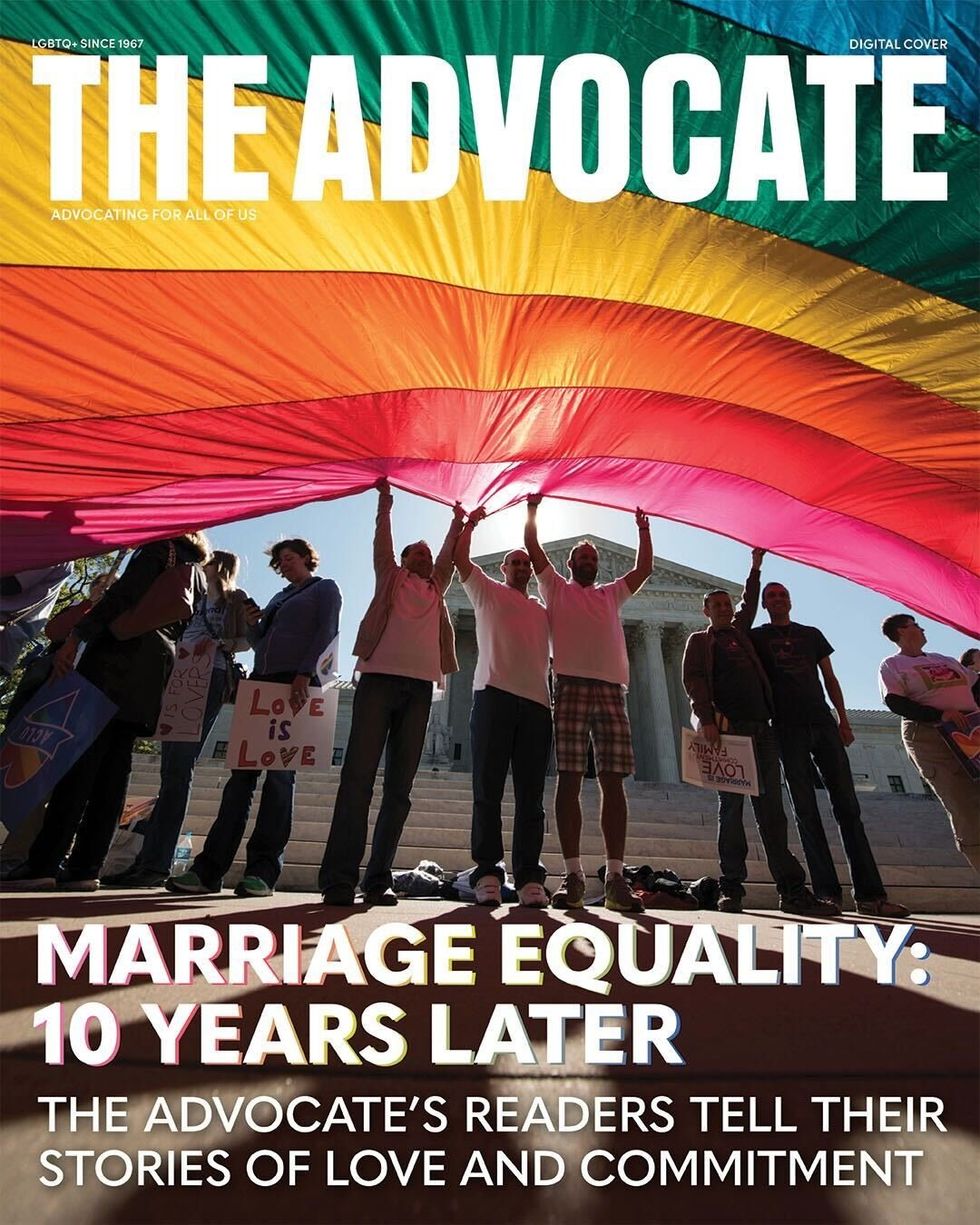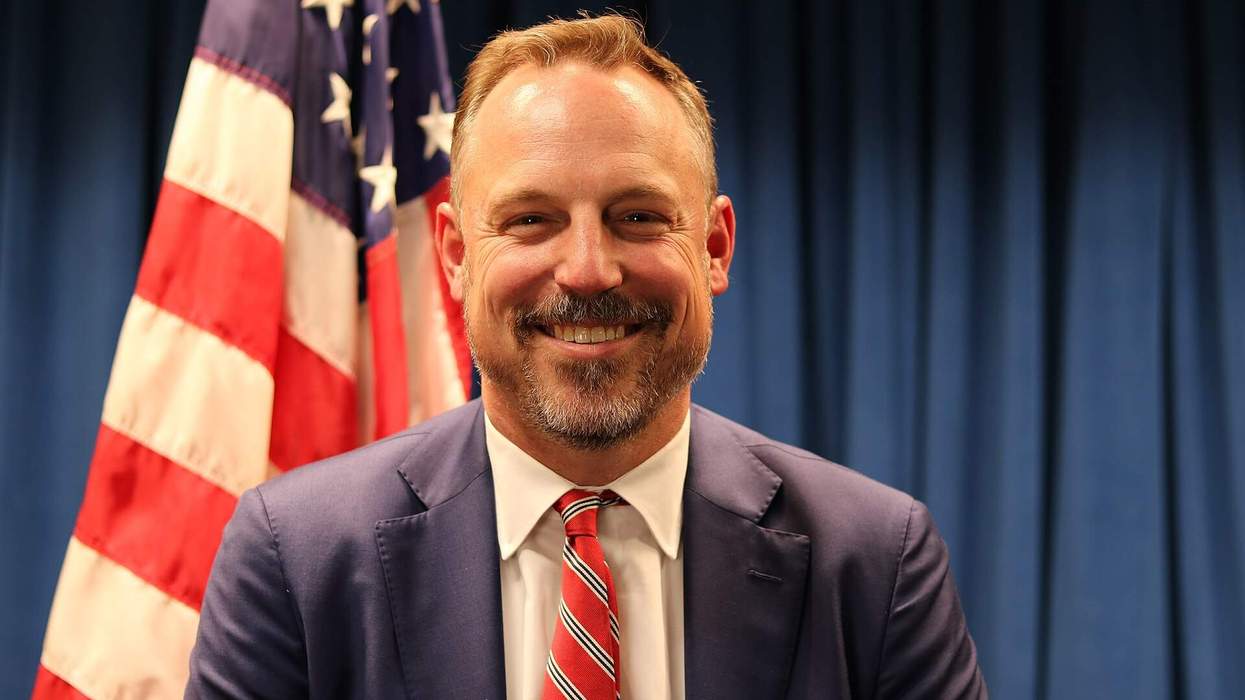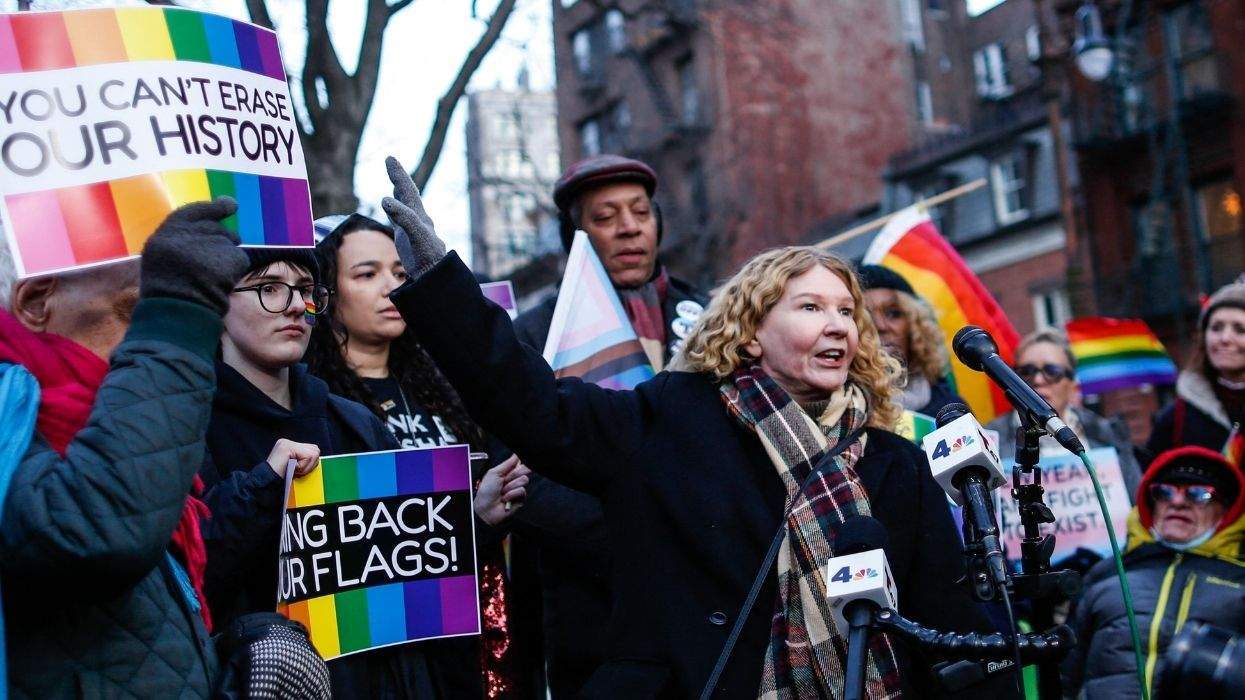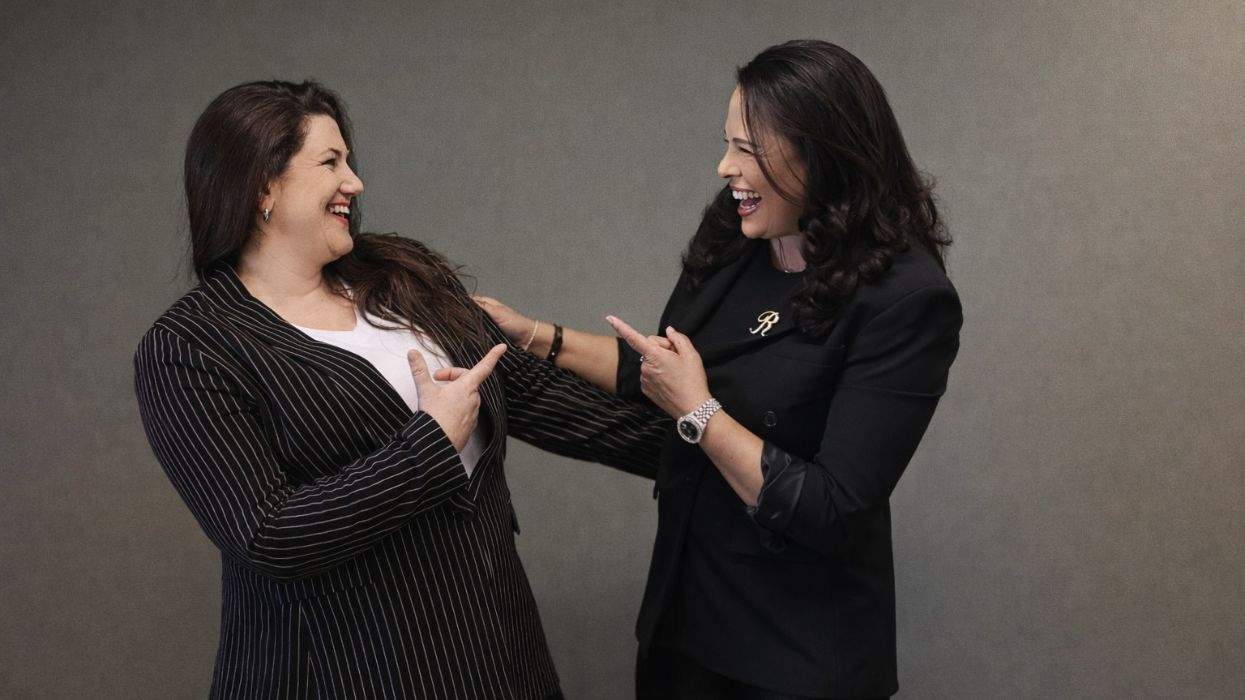A decade ago, on June 26, the U.S. Supreme Court announced a ruling in the case Obergefell v. Hodges that changed LGBTQ+ history in America: The majority of justices ruled in favor of marriage equality. Today, queer families, LGBTQ+ people, and allies are celebrating 10 years of the freedom to marry regardless of gender.
Keep up with the latest in LGBTQ+ news and politics. Sign up for The Advocate's email newsletter.
In the Obergefell decision, the high court found that prohibiting same-sex marriage was a violation of the equal protection clause under the 14th Amendment of the U.S. Constitution.
Since then, marriage equality support has grown. Almost 70 percent of Americans support marriage for same-sex couples, according to Gallup. More than 80 percent of Democrats support marriage equality, and 74 percent of independents. Even Republicans have supported marriage equality with record highs in 2021 and 2022 for members of the GOP — it currently holds at 46 percent.
There are now 823,000 married same-sex couples in the country, an increase of about 600,000 after Obergefell, the Williams Institute of UCLA reports. Of those couples, around 300,000 are raising children. The institute also recently reported that between 2015 and 2025, the total nationwide spending on weddings between same-sex couples reached $5.9 billion.
Ahead of today’s anniversary, The Advocate asked readers to take us back to that day and how they feel about marriage equality under the Trump administration in 2025.
Most people were just going about their day, with a few who anxiously awaited the opinions to come down starting at 10 a.m., which is when the court releases them.
Catherine Hunt, 63, was in Seattle in her apartment when the news broke. "I felt I sense of relief," she said.
For 46-year-old James Yeager, he spent the morning anticipating the ruling.
"I was in training at my job. I knew the ruling was likely to come out that day, so I had been paying more attention to the news feed on my phone than the actual training. When the ruling dropped, I dropped everything and bolted out of the training (with my coworkers' enthusiastic blessing) and ran to my husband's cubicle (we worked in different departments of the same company at the time). He hadn't heard yet because he was talking to a coworker, so I got to tell him by dropping to one knee and proposing. (Spoiler alert: He said YES! and we got married three months later,)" Yeager wrote to The Advocate.
Related: New congressional resolution would make June 26 'Equality Day' celebrating LGBTQ+ victories
Many of those who responded spoke about how important it was to receive the same rights as people in opposite-sex marriages, from tax advantages to health care. And many decided to marry because that right became a reality.
Louis Tharp, 74, said he was refreshing the SCOTUSblog every minute, waiting for the decision. Tharp, who had married thrice to the same man at different times, leading up to nationwide marriage equality — once in California, once in Washington, D.C., and once in Connecticut. In 2015, he worked for the Obama administration and was in D.C. while his husband was in New York.
"Being an Obama appointee and now directly benefiting from a Supreme Court decision made me feel for the first time in my life, that I was a valued U.S. citizen. Before then, I was an outsider. This wasn't my country," Tharp said in his response. "When I was growing up, you were either closeted, arrested, or sent to a mental institution because being gay was a crime and a mental illness. Slowly, life got better over five decades, and June 26, 2015, was the declaration of presence for the LGBT community with the Supreme Court's endorsement."
For some, the ruling meant it validated the love they had for their partner. Those who messaged The Advocate said the ruling lent legitimacy, regardless of whether it was wanted or not. Many had been together for years — even decades — leading up to the Supreme Court ruling.
Michael Mondello, 76, wrote that he and his husband married in Provincetown in 2008. "We have been together almost 51 years so the immediate impact was a verification of what we did in 2008," he wrote.
"We had been together for 18 years prior to the marriage equality ruling in 2015. We discussed whether or not to go ahead and get married. We talked about the pros and cons, but ultimately realized that people had given their lives for this right, and it would be disrespectful to all those people who had joined the fight if we did not go ahead and get married," said Jane Fahey, 72. "I had just retired as an elementary school administrator, where I had remained semi-closeted for almost 40 years. All of a sudden it just seemed good and right to live my authentic life and to be married to the woman I loved."
And of course, others cited the security that the right to marry brought. A legal marriage allows access to more than 1,000 rights, including Social Security benefits if a spouse dies, medical leave protections, estate tax exemptions, and more.
It also allowed those living in states that already had granted marriage equality to have their marriage legally recognized across state lines. That's something that Eugene Galt noted in his response.
"It did not affect how real our relationship was to us. Rather, it meant that I could move anywhere in the country, and my marriage would have the same legal protections those in opposite-sex marriages had long taken for granted," he said.
Scott Turner, 62, also emphasized the importance of cross-state recognition.
"[My husband and I] were already married in California but lived in South Carolina, where our marriage was not recognized. This ruling was the final step in the recognition of our relationship, which is now 35 years. In our eyes, we were married even before California. But having it legal in all states, including the one we lived in, was such a joyous moment. Not to mention, our financial situation was improved as many bills we owed from income taxes, property taxes, insurance, even gym memberships were immediately cut due to our marriage," he said.
Related: Jim Obergefell: 10 years after my Supreme Court win, marriage equality is under attack
While today is celebrated, almost every respondent mentioned a concern about the future of marriage equality under the current Supreme Court, which has a conservative majority, and under President Donald Trump and his administration.
"Given the state of our nation right now, and given the political nature of the Supreme Court, I don’t have high hopes that marriage equality is going to last in this country. I don’t know how they can erase our marriage because of financial and legal implications, but I worry about the erosion of all LGBTQ+ rights," Fahey wrote.
Still, regardless of what happens in the coming years, many still recall June 26, 2015, as a joyous day.
William Vayens, 74, said the ruling allowed him and his husband to escape lavender marriages.
He wrote to The Advocate, "It allowed us to divorce our lesbian wives (for medical insurance reasons) and marry each other and receive the benefits we should have received 40 years ago."

















Charlie Kirk DID say stoning gay people was the 'perfect law' — and these other heinous quotes
These are some of his worst comments about LGBTQ+ people made by Charlie Kirk.